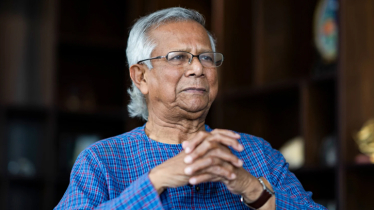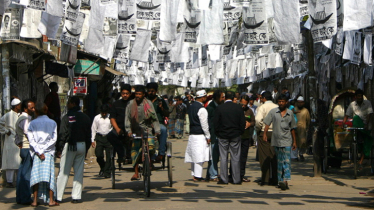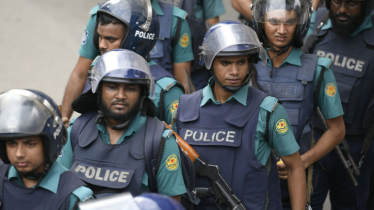
File Photo
Today is the historic six-point movement day. On this day in 1966, an intense mass movement started across the country in favour of the six-point demands proclaimed by Father of the Nation Bangabandhu Sheikh Mujibur Rahman. But it was not anything that stemmed suddenly. The six points sprung following the continuous injustice, oppression and discriminatory policies of the West Pakistanis towards the people of East Bengal. Over time, it became the charter for the Bengali liberation.
On that day, 11 people including Manu Mia, Shafiq and Shamsul Haque were killed by police and EPR (at that time) in Tongi, Dhaka and Narayanganj during the strike called by Awami League. Since then, under the leadership of Bangabandhu, the subjugated Bengali nation moved towards the mass uprising of 1969.
The main statement of the 6th clause was that all powers except defense and foreign affairs would be in the hands of the provincial government. East Bengal and West Pakistan will have two separate and easily exchangeable currencies. There will be a separate account of the foreign exchange earned by the two regions with the responsibility of levying and collecting government taxes and duties being in the hands of the provincial government, and to reduce the defense risk of East Bengal, the paramilitary forces should be formed and the naval headquarters should be set up here.
Ayub Khan, the military ruler of Pakistan, became upset with the 6-point demands announced by Bangabandhu. He threatened and said that if you exaggerate with the 6 points, you will be answered with the language of arms. Meanwhile, the central leaders of Awami League including Sheikh Mujibur Rahman visited the entire East Bengal to convey the 6-point program to the people and termed the 6-point as a demand for the survival of Bengalis. Bangabandhu was arrested while campaigning for 6 points in Jashore, Mymensingh and Sylhet.
Later, the historic 6-point movement gradually turns to be the freedom movement of Bengali. In favor of this demand, the complete verdict of the Bengali nation was declared in the historic general election of 1970. Awami League won the majority of seats in that election. Like the language movement of 1952 which united the people of this country irrespective of caste, creed and color, similarly, the six-point movement united people politically irrespective of parties.
As the creation of Pakistan was mentioned in the Lahore Resolution, this six-point contained the mantra of an independent state Ayub Khan started to suppress the movement. The public rage against him united the people of this country and led to the freedom movement. The 6 points movement is a huge milestone in our road to freedom. The importance and significance of 6 points in the history of Bengali nation is enormous.
TDM/SD








